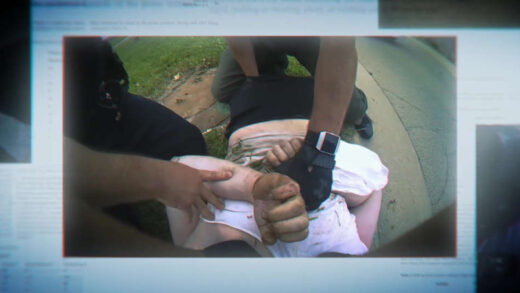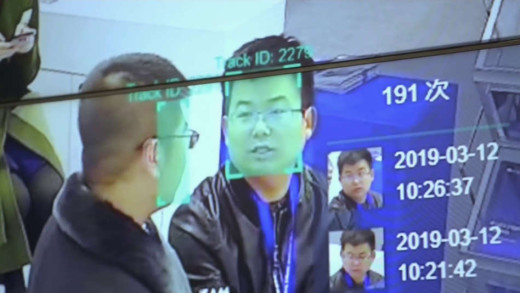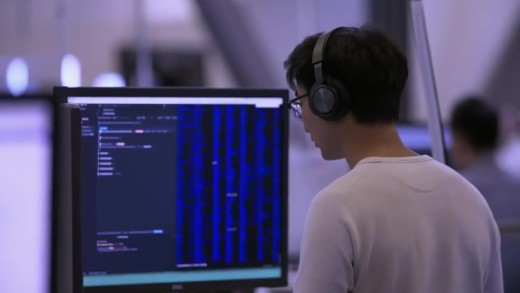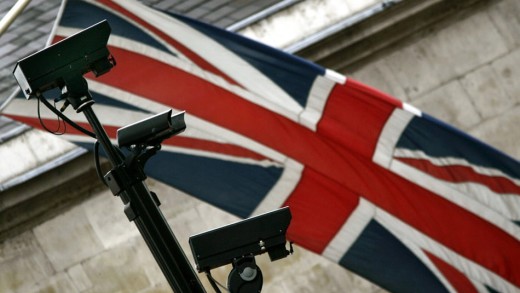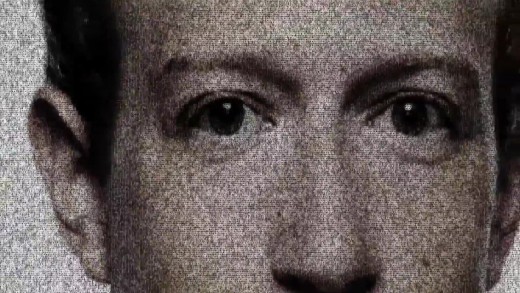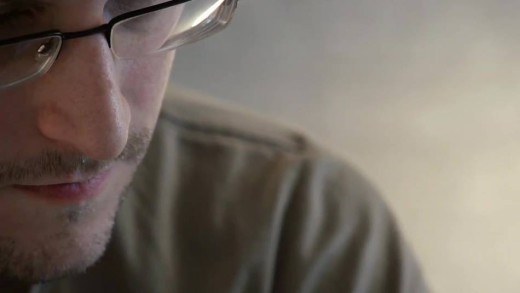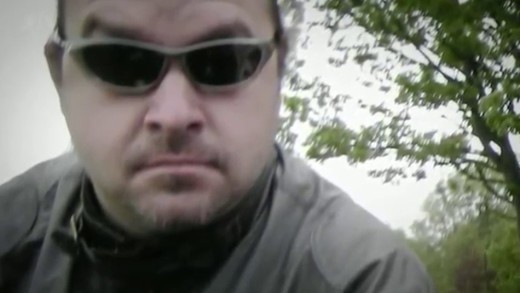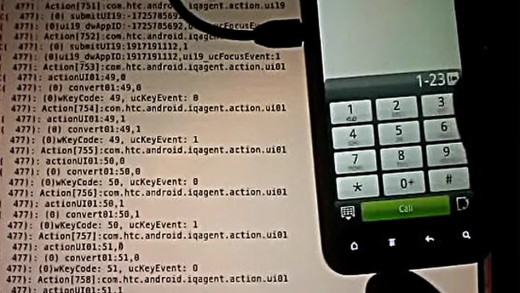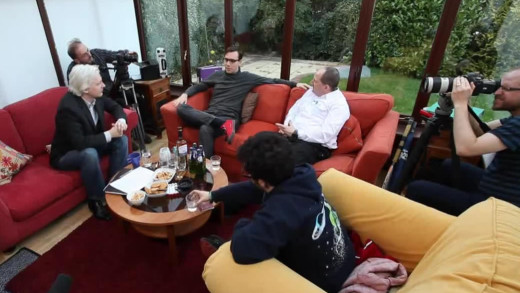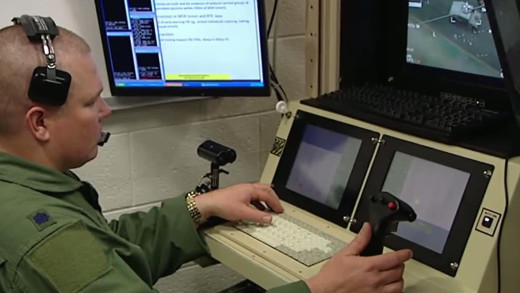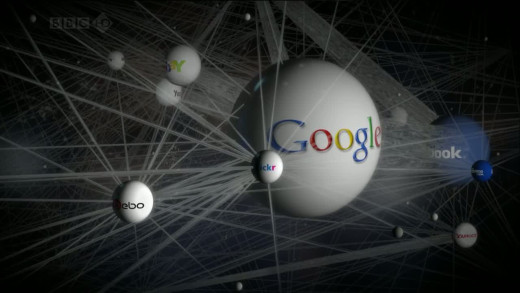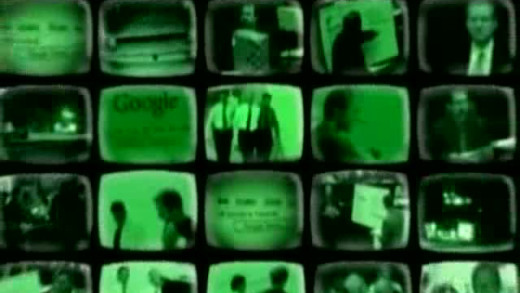Documenting Police Use of Force investigates deaths that occurred after police used tactics like 'prone restraint' (which is a method of restraining a person by placing them face down on the ground which can pose serious risks including difficulty breathing and psychological trauma), forced-sedation, and the use of weapons such as tasers, batons, and other physical violence such as punching, kicking, and pressure-holds. The film also investigates other so-called "less-lethal force" methods used on citizens during police encounters and arrests. The documentary and accompanying reporting draw on police records, autopsy reports and police body-camera footage, offering the most expansive tally of deaths in the United States.
AI, or Artificial Intelligence, is spouted as the ability of machines to "think" [sic] at a speed and depth far beyond the capacity of any human. Proponents of these digital technologies claim their systems are used in ways that are beneficial for society. But as we see, the current use of AI isn't necessarily aligned with the goals of building a better society. There still remain escalating concerns about labour, the future of work, privacy, the surveillance society, and social control--all valid criticisms that go back many decades--while the rivalry for technological supremacy between the United States and China mirrors the dynamics of the cold war. In the Age of AI is an investigation that touches on these areas, providing a platform to ask fundamental questions about unrestrained technological escalation.
The Facebook Dilemma aims to open an in-depth investigation into the impact Facebook has had on privacy and democracy in the United States and throughout the world, by revealing how the decisions made by the company as it sought increased wealth and new users, transformed it into a vast surveillance machine, a media company, and a 'hidden hand' in elections and political discourse. Drawing on original interviews from those inside the company, this two part series catalogues some of the ignored warning signs, both inside and outside the company, of Facebook's negative impact, growing from Zuckerberg's dorm-room project and into a powerful global empire.
Governments all around the world are using high-tech mass surveillance tools to monitor their citizens. Western corporations, including Britain's largest weapons manufacturer, BAE, are among those which are creating and selling mass surveillance infrastructures all across the globe, but especially to particularly repressive regimes. Weapons of Mass Surveillance makes example of what is happening throughout the Middle East where journalists, human rights advocates and activists are being targeted with surveillance tools developed by western corporations with extreme real-world consequences. Political opponents to tyrannical power are targeted, jailed, and in some cases, tortured or "disappeared." This shows the power of mass surveillance tools for great harm, and how the west is culpable in perpetuating systemic repression both at home and abroad.
Facebook is an enormously powerful corporation, harnessing both the self-disclosed and gleaned personal data of over 2 billion people. Its user-base is larger than the population of any country. The company is all pervasive online, tracking and profiling users and non-users alike. Cracking the Code looks at the insides of this giant machine and how Facebook turns your thoughts and behaviours into profits--whether you like it or not. And it's not just a one-way transaction either. Cracking the Code also explains how Facebook uses vast troves of web data to manipulate the way you think and feel, as well as act--all in the sole interests of Facebook, masquerading as "community." What are the social implications of this--when one company basically controls the insights and experiences of the entire online world, with extremely personalised and targeted social and behavioural engineering on a scale never before seen?
Social media networks purport the ability to interact with culture—talking directly to artists, celebrities, movies, brands, and even one another—in ways never before possible. But is this real empowerment? Or do marketing companies still hold the upper hand, as before? Generation Like explores how the perennial quest for identity and connection is usurped in the pervasive game of cat-and-mouse by vast corporate power in the extensive machine for consumerism that is now the online environment. The audience becomes the marketer; buzz is subtly controlled and manipulated by and from real-time behavioural insights; and the content generated is sold back to the audience in the name of participation. But does the audience even think they're being used? Do they care? Or does the perceived chance to be the 'next big star' make it all worth it?
Citizenfour
In January 2013, film-maker Laura Poitras received an encrypted e-mail from a stranger who called himself Citizen Four. In it, he offered her inside information about illegal wiretapping practices of the NSA and other intelligence agencies. Poitras had already been working for several years on a film about mass surveillance programs in the United States, and so in June 2013, she went to Hong Kong with her camera for the first meeting with the stranger, who identified himself as Edward Snowden. She was met there by investigative journalist Glenn Greenwald and The Guardian intelligence reporter Ewen MacAskill. Several other meetings followed. Citizenfour is based on the recordings from these meetings. What follows is the largest confirmations of mass surveillance using official documents themselves, the world has never seen...
Peter Francis, a former undercover police spy turned conscientious whistleblower, breaks ranks by speaking to the media after becoming troubled by the unaccountable culture of secret police operations throughout the United Kingdom targeting peace activists for decades. Tactics included undercover police officers having sexual relationships with activists, even going as far as commonly having children with the women they were spying on. Undercover agents also often assumed the identities of dead children in order to have "solid cover stories." We also see how undercover police were asked to look for intelligence that could be used to discredit the family of murdered teenager Stephen Lawrence and their campaign. The Lawrence family both speak of their shock at hearing about that the police did this to them. This short investigation opens a flood of questions about the secret history of covert police operations, and indeed the future of them in the context of the sprawling surveillance state of today.
Admit it--you don't really read the endless pages of terms and conditions connected to every website you visit or phone call that you make do you? Of course not. But every day billion-dollar corporations are learning more about your interests, your friends and family, your finances, and your secrets--precisely because of this; and are not only selling the information to the highest bidder, but freely sharing it with the government. And you agreed to all of it. With plenty of recent real-world examples, Terms And Conditions May Apply covers just a little of what governments and corporations are legally taking from Internet users every day--turning the future of both privacy and civil liberties into serious question. From whistleblowers and investigative journalists to zombie fan clubs and Egyptian dissidents, this film demonstrates how all of us online have incrementally opted-in to a real-time surveillance state, click by click.
Cypherpunks is a movement originating from the 1980s aiming to improve Internet privacy and security through proactive use of cryptography. With WikiLeaks being a recent offshoot of the many projects derived from the Cypherpunk movement, WikiLeaks editor Julian Assange talks with three activists from the Cyberpunk world to cover the topics of mass surveillance and social control being tied directly into technology as modern society progressively intertwines with technological progress...
The latest in the string of controversies as part of the United States' ongoing "war on terror", is the military's growing reliance on "Unmanned Aerial Vehicles" otherwise known as 'drones', evidenced by the international reaction to recent drone missile attacks along the border in Pakistan. The military is also deploying other technological advancements alongside, such as robots in the battlefield and drones that work in swarms. Is this just a big computer game? A new tech-driven arms race? It doesn't end there though -- drones are now creeping into use by police and the intelligence services as a surveillance tool, and even into commercial and civilian use...
The Program
The Program is a short film focusing on William Binney—a former highly placed intelligence official with the United States National Security Agency, turned whistleblower after revelations that a system he created for foreign intelligence gathering was turned inward for domestic spying at the behest of the Bush administration in 2001. For this, Binney resigned in October of that year and later began speaking publicly. He is among a group of NSA whistle-blowers, including Thomas A. Drake, who have each risked everything—their livelihoods, freedom, and personal relationships—to warn everyone about the dangers of the current era of mass surveillance.
20 years on from the invention of the World Wide Web, The Virtual Revolution explores how the Internet is reshaping almost every aspect of our lives. But what is really going on behind this reshaping? The inventor of the Web, Tim Berners-Lee, believed his invention would remain an open frontier that nobody could own, and that it would take power from the few and give it to the many. So how do these utopian claims stand up to today?
Pax Americana and the Weaponization of Space takes us to the Cold War and beyond, where an arms race of weapons technology plays out by the world's superpowers in space. Satellites, nuclear weapons, tracking technologies, rockets--the weaponisation of space was and is more of the same colonialism in the tradition of empire, much like the sea battles of the 18th and 19th centuries. Indeed, as we learn through Operation Paperclip, the United States recruited than 1,600 scientists from Nazi Germany for work in the Space Race after the end of World War II. Fast forward to today, in the name of protecting commercial investment, the United States has crowned itself with being the so-called "arbiter of peace" in space. But with their weapons industry replacing almost all other manufacturing in America, this claim is ludicrous. More than fifty cents of every US tax dollar is spent on the military. The dream of the original Dr. Strangelove, Wernher von Braun--the Nazi rocket-scientist turned NASA director--has survived every US administration since World War II and is coming to life ever more rapidly. Today, space is largely weaponised, a massive military-industrial-complex thrives, and many nations are manoeuvring for advantage with yet more weapons of war, surveillance, and control.
For Your Eyes Only? reports on the existence of a secret government program that intercepts millions of e-mails each day in the name of 'terrorist surveillance'. News about the program came to light when a former AT&T employee, Mark Klein, blew the whistle on a large-scale installation of secret Internet monitoring equipment deep inside AT&T's San Francisco office. The equipment was installed at the request of the United States government to spy on all e-mail traffic across the entire Internet. Though the government and AT&T refuse to address the issue directly, Klein backs up his charges with internal company documents and personal photos...
September 11 has indelibly altered the world in ways that people are now starting to earnestly question: not only perpetual orange alerts, barricades and body frisks at the airport, but greater government scrutiny of people's records and electronic surveillance of their communications. The US National Security Agency (NSA) has engaged in wiretapping and the sifting of Internet communications of millions of people worldwide, including their own...
Every day, escalating technologies are being used to monitor all of us as populations with unprecedented scrutiny—from driving habits to workplace surveillance, as shoppers, as consumers, as citizens. We are all increasingly being observed and analysed. Internet searches are monitored and used as evidence in court, the police track our movements on the road, governments collect our DNA, fingerprints and iris scans, corporations assemble huge databases for profiling and selling data, while governments collude with such lucrative businesses—for example, Acxiom, Lexis Nexis and ChoicePoint—to gain access to vast volumes of information about people and the machinations of modern society. What will it take for us to stop this system before it boils over into a full-blown technocratic authoritarian regime?
In 1966, Australia made an agreement with the United States that allowed the establishment of a secret military base satellite tracking station, just south of Alice Springs in the Northern Territory. The facility is called Pine Gap and for more than forty years it has operated in a shroud of secrecy and been the target of much controversy. Home on The Range attempts to contextualise these issues by highlighting the history of the base and its origins, as well as the stories of controversy. Some of these include the Khemlani Affair and the sacking of the Whitlam government in 1975, the Christopher Boyce spy trial, the role of the Central Intelligence Agency and its former agent Victor Marchetti, as well as documenting the post-war culture of government secrecy, sprawling intelligence agencies and foreign affairs and policy. But Home on the Range does more than gesture toward such CIA interventions. It marshals a persuasive array of evidence linking the imminent expiry of leases on United States military and intelligence bases in Australia in 1975, to the CIA and Whitlam's sacking, posing direct questions about the nature of democracy in regions beholden to the United States.
